Director, Eurasia Nonproliferation Program
[email protected]
Berlin, Germany
Areas of Research
- Russia’s foreign and security policy
- Russia’s approaches to arms control and non-proliferation
- Arms control and non-proliferation in the Middle East
- Russia’s defense cooperation with China, DPRK and Iran
Background
Dr. Hanna Notte is the director of the Eurasia Nonproliferation Program at the James Martin Center for Nonproliferation Studies in Monterey, California, and a senior associate (non-resident) with the Europe, Russia, and Eurasia Program at the Center for Strategic and International Studies. She’s also an associate fellow with the Kennan Institute. Her expertise is in Russian foreign policy, the Middle East, and arms control and nonproliferation.
Notte previously worked with the Shaikh Group, a nongovernmental organization focused on informal diplomacy in Middle East conflicts, supporting its engagement with Russia. During her doctoral studies, she was a visiting researcher with the Institute of Oriental Studies of the Russian Academy of Sciences and the Carnegie Moscow Center.
Based in Berlin, her writing has appeared in outlets such as The Atlantic, the Financial Times, Foreign Affairs, the New York Times, War on the Rocks, and ZEIT Online, among others. She is the coauthor of Death Dust: The Rise, Demise, and Future of Radiological Weapons Programs (Stanford University Press, 2023). Notte is a regular guest on conference panels and podcasts produced by leading U.S. and European think tanks. Her book about Russia’s global foreign policy since the full-scale invasion of Ukraine, We Shall Outlast Them: Putin’s Global Campaign to Defeat the West, is forthcoming with W. W. Norton & Company in August 2026.
Education
Dr. Notte holds a doctorate and MPhil in International Relations from Oxford University and a BA in Social and Political Sciences from Cambridge University.
CNS Work
- CNS at the 2025 Munich Security Conference
 Hanna Notte represented CNS at the 2025 Munich Security Conference, which took place from 14-16 February.
Hanna Notte represented CNS at the 2025 Munich Security Conference, which took place from 14-16 February. - Putin Just Suffered a Huge Defeat
 CNS expert’s guest essay for The New York Times on the ousting of Bashar al-Assad.
CNS expert’s guest essay for The New York Times on the ousting of Bashar al-Assad. - Rebel advances in Syria spell danger for Russia’s Middle Eastern ambitions
 Moscow’s ability to support its regional partner, Iran, is coming under increasing strain.
Moscow’s ability to support its regional partner, Iran, is coming under increasing strain. - How Ukraine Became a World War
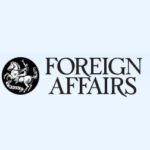 New Players Are Transforming the Conflict—and Complicating the Path to Ending It
New Players Are Transforming the Conflict—and Complicating the Path to Ending It - Machiavelli in the Ivory Tower: A CNS videocast series
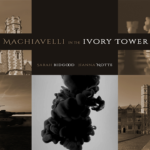 Ep.12: China’s Nuclear Modernization with Dr. Fiona Cunningham
Ep.12: China’s Nuclear Modernization with Dr. Fiona Cunningham - The Risk of Renewed Nuclear Testing
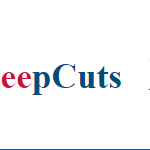 The end of nuclear weapons testing is a significant nonproliferation success, yet concerns about its resumption persist.
The end of nuclear weapons testing is a significant nonproliferation success, yet concerns about its resumption persist. - Prisoner swaps do not presage any sort of rapprochement with Russia
 There is no evidence suggesting that the Kremlin is prepared to engage in sincere negotiations regarding Ukraine.
There is no evidence suggesting that the Kremlin is prepared to engage in sincere negotiations regarding Ukraine. - OP#61: Iran-Russia Defense Cooperation: Current Realities and Future Horizons
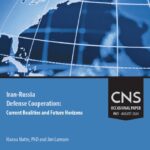 Since Russia’s full-scale invasion of Ukraine in February 2022, the country’s defense relationship with Iran has deepened and widened considerably.
Since Russia’s full-scale invasion of Ukraine in February 2022, the country’s defense relationship with Iran has deepened and widened considerably. - The Uncomfortable Reality of Russia and Iran’s New Defense Relationship
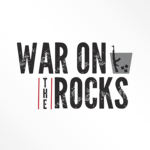 Since 2022, Russia’s defense relationship with Iran has taken a big leap forward.
Since 2022, Russia’s defense relationship with Iran has taken a big leap forward. - What Russia Wants in the Middle East
 Moscow seeks to exploit instability but avoid escalation.
Moscow seeks to exploit instability but avoid escalation.
Articles and Activities
- How Ukraine Became a World War
- Russia is weighing the costs and benefits of retaliation
- Containing Global Russia
- Russia’s Dangerous New Friends
- Podcast interview: Russia’s Growing Support for Iran and North Korea
- Is Moscow the Big Winner from War in the Middle East?
- Putin Is Getting What He Wants
- Russia and the Global South
- Russia: A Global Outcast or Still a Desirable Partner?
- What the Israel-Gaza conflict means for Ukraine
- What Role Does Russia Have To Play In Hamas’s Invasion Of Israel? Q&A With Expert Hanna Notte
- US-Russian Relations Can Still Get Worse
- Challenges and Prospects for Further U.S.-Russian Nuclear Arms Control
- Interview: Hanna Notte on Russia in the Middle East After Ukraine
- Dr. Hanna Notte speaks at Lennart Meri Conference in Tallinn
- Russia’s Invasion of Ukraine – The Iran Nuclear Price Tag

